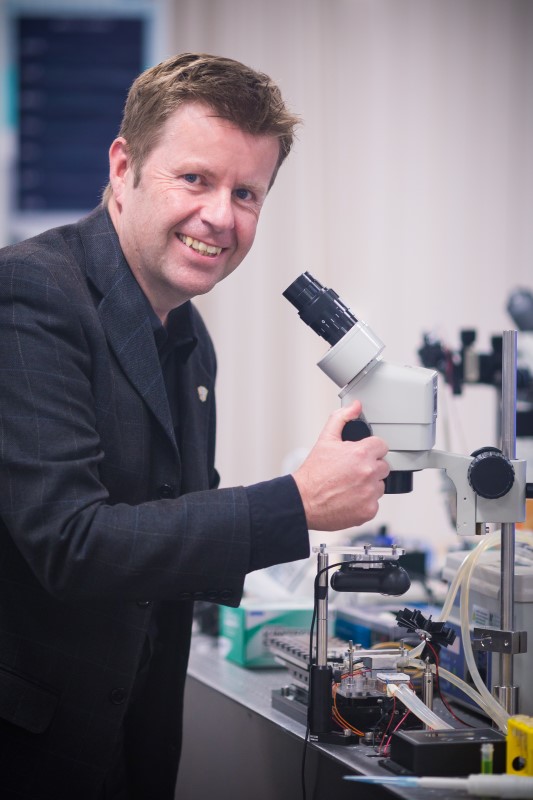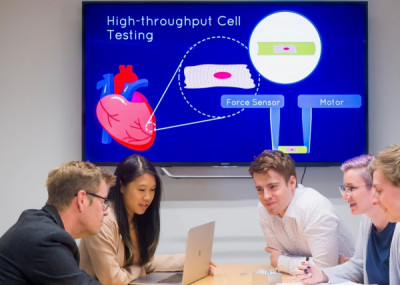Andrew Taberner

2019: Associate Professor Andrew Taberner of the Auckland Bioengineering Institute at the University of Auckland has been awarded a James Cook Research Fellowship for research titled ‘A 'dyno' for the heart: developing a new high-throughput instrument for measuring the performance of contracting heart cells’
The heart comprises billions of cardiac muscle cells, which coordinate contractions to pump blood around the body. The properties of these cardiac muscle cells vary throughout the heart as well as when the cells are diseased. A better understanding of the performance of heart cells in different contexts could provide opportunities to develop new treatments for diseases affecting the heart. However, the process of making mechanical measurements of isolated heart cells is currently painstaking and slow. We urgently need to develop new high-throughput technologies and tools to speed up the measurement process. In his James Cook Fellowship, Associate Professor Taberner will develop a cutting-edge device with which to study living, contracting cells harvested from the heart. This will include 3D bioprinting of isolated cells in a format that allows rapid testing of their properties.

Professor Taberner with his students (left to right); Emily Lam Po Tang (PhD), Robin Laven (Undergrad), Amy Garett (PhD), Stephen Creamer (ME). Photo: Prasad Babarenda Gamage
This project will involve the development of new bioprinting technologies, image processing methods, and new miniature cell-testing devices. The research team will bring these together in a system compatible with tools currently used in biological research and in the pharmaceutical industry. This device will be useful for many other types of cells. In food science, for instance, scientists could use it in the development of new forms of ‘laboratory grown’ meat.
Associate Professor Taberner will be working with collaborators at the University of Auckland, University of Otago, Massachusetts Institute of Technology, and the University of Twente, and with a talented team of local students and researchers. Together, they plan to develop a technology that could transform productivity in heart muscle research and drug discovery.
